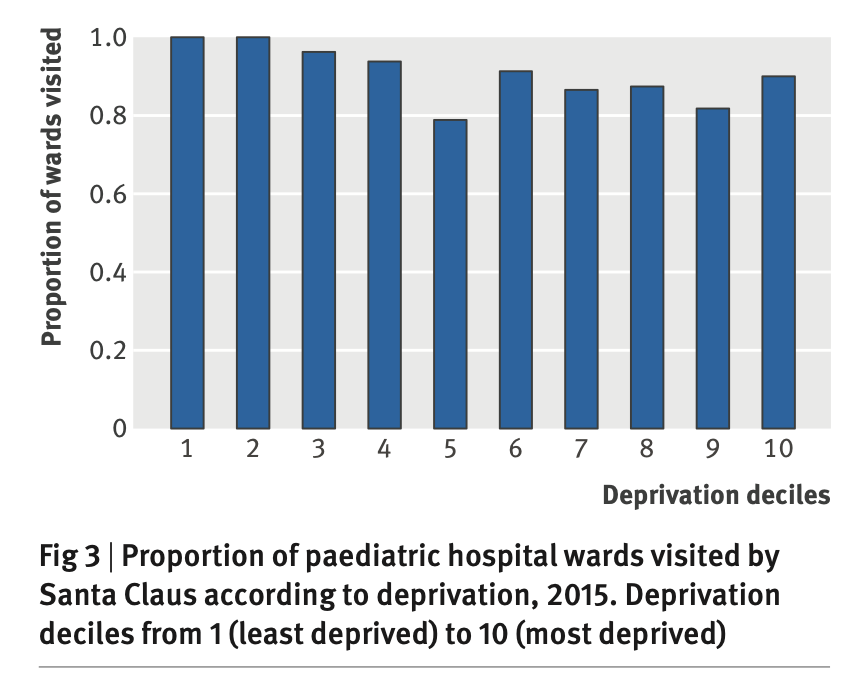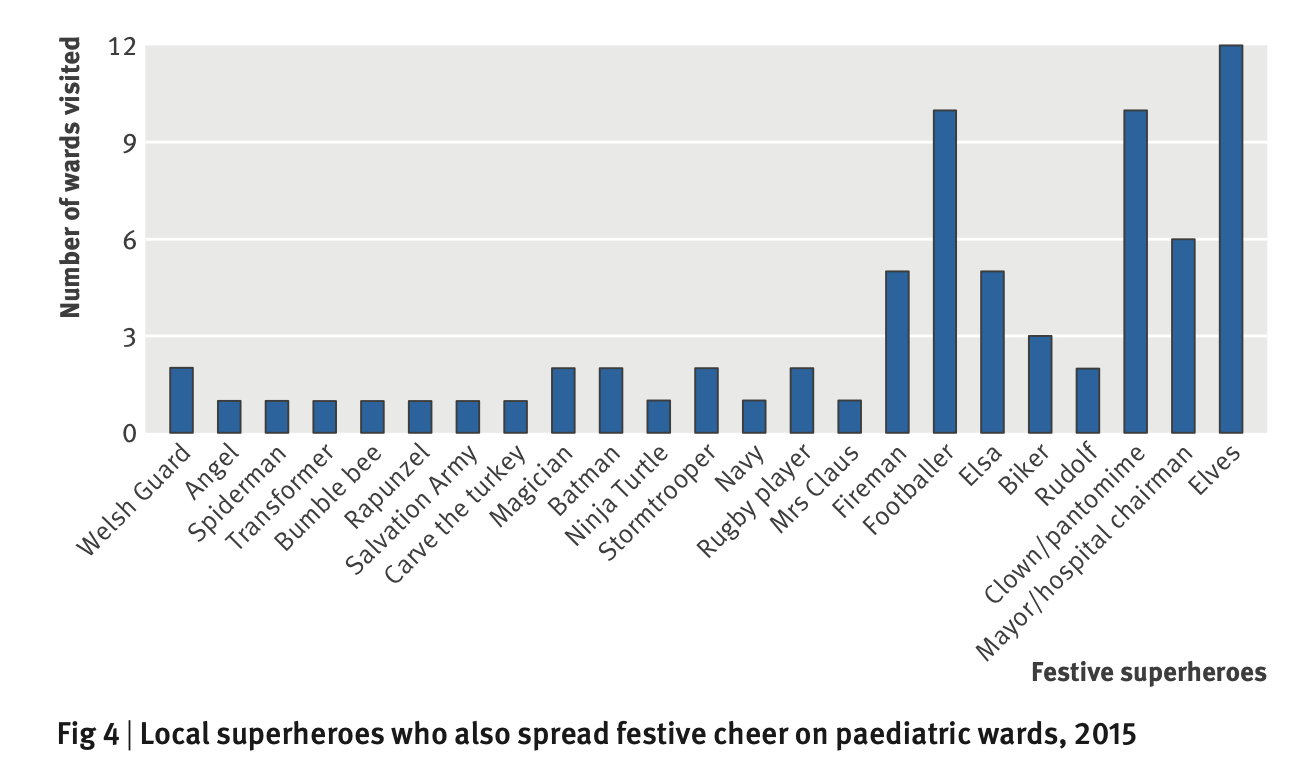Santa Prefers Wealthy Sick Children
I recently found a lovely paper: Dispelling the nice or naughty myth. I recommend reading the entire paper, but here are its main findings:
It has long been thought that Santa Claus gives presents to nice but not naughty children. This is the first study, to our knowledge, to dispel the myth that Santa visits children based on behaviour and suggests socioeconomic deprivation plays a greater role in determining a visit. It raises important ethical dilemmas, such as whether children should be told and what should be done about Santa.
Santa Claus has an incredibly tough job to ensure that all the nice children receive presents. Undoubtedly deeper socioeconomic factors are at play, even impacting Santa Claus’s abilities to reach out to every child. Whether his contract needs to be reviewed or local Santas employed in “hard to reach” areas, all we want is for every child to be happy this Christmas.
I noticed that the paper cited a deleted reddit comment, so I went and dug it up:
Santa is contractually forbidden from altering the socioeconomic status of any individual. On a grand scale, the ability to alter the status of particular groups would allow Santa too much influence over political decisions. This would eventually be noticed and cause discontent which runs contrary to the primary mission of the North Pole: the deliverance of Cheer™. As such he can only provide presents that are appropriate for the environment the child is in.
Here are some highlights from the paper's BMJ comment section:
First, we find issue with the measurement of "naughty": as determined by the average number of school days missed and aggregate criminal activity. Average school days missed as a proxy is inappropriate as this metric does not adequately capture the attitude of the children missing school. In a population with a larger hospital system and more sick children, the days missed are likely inflated due to illness rather than nautiness. Additionally, the authors use average criminal activity for adolescents aged 10-17 as their proxy for naughtiness. However, this age group is not reflective of the population in paediatric hospital wards in its entirety. Transition from paediatric to adult care typically occurs between 15 and 20 years of age or at the end of formal schooling. …
Secondly, in a sample of American mall Santas (n=15), each reported their first question to children was whether they had been naughty or nice this year. Therefore, self-reporting should not be excluded from the study, as these reputable Santas take children’s self reflection into primary consideration.
The assertion that Santa Claus delivers gifts across the globe within a 24 hour period is not entirely true. In the Netherlands, e.g., Santa traditionally brings his presents on December 6th, in Russia (as "Father Frost") on January 6th, and in Germany on December 24th (Christmas Eve). The arrival of Santa in Germany on Christmas Eve is well documented since 1835 (1). Given the short period from Christmas Eve to Christmas and given that Santa has a two bases in North Germany (2), it is likely that he approaches the UK from the East and not from the North. The authors should re-analyse the flying distances under this aspect.
Santa's reluctance to fly to the UK may date back to Christmas 1940 ff. when flying obects coming from across the North Sea were hailed with an unfriendly welcome. The surprising finding that Santa thereby skips socioeconomic weak areas could have produced a feeling of being left behind in these regions. These regions to some extent match the regions that voted for the brexit (3). Hence, the authors should include the brexit voting data in the analysis. Protectionism, however, could add to the unwillingness of Santa to reliably come to the UK. The British government would therefore be wise to invite Santa Claus to the brexit negotiations.
Yours sincerly, Gunther Weitz
Competing interests: I do drink Coca-Cola from time to time.
Children are never 'naughty' - they sometimes misbehave for perfectly good reason, of course, and even for not very good reason, buy there is always a reason of sorts, and medical professionals should be made to realise that. The paper's short title does go a little way to dispelling the myth, but not nearly far enough
I call for the emergency extraordinary meeting of the guarantors/directors of the BMJ to review the serious lapse in the judgement of BMJ editors in their decision to publish this libelous article and consider the necessary action required to defend themselves from the legal representatives of Claus & Elfs Limited (incorporated in Magnetic North)


